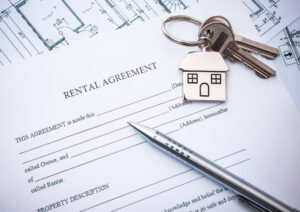Ensuring a Habitable Living Space: Understanding Massachusetts State Sanitary Code

When you rent a place to call home, you have every right to expect a comfortable and safe living environment. In Massachusetts, the State Sanitary Code exists to safeguard these fundamental expectations. What does the State Sanitary Code mean for tenants and landlords, and how does it ensure habitable living conditions?
What Does “Habitable” Mean?
The State Sanitary Code defines “habitable” as a place that is comfortable and clean enough for a person to live safely. This means that tenants should expect a living space that is free from conditions that could jeopardize their health or safety.
Addressing Sanitary Code Violations
If you, as a tenant, believe that your rental unit does not meet the standards set by the State Sanitary Code, you have recourse. If your landlord does not respond to your complaints about a Sanitary Code violation, you can take action by requesting that a code enforcement officer or the local board of health inspect your apartment.
Upon inspection, if the conditions are found to be in violation of the Sanitary Code, the inspector can order your landlord to rectify the problem promptly. If your landlord fails to make the necessary repairs, you may have the option to take further action, such as withholding a portion of your rent or even moving out, even if there is a lease or rental agreement in place.
However, before pursuing these options, it is advisable to contact a private lawyer or legal services for guidance and advice tailored to your specific situation. This ensures that you understand your rights and responsibilities and can take appropriate action within the bounds of the law.
Tenant Lead Law Notification and Tenant Certification
For rental properties constructed before 1978, additional regulations apply. Both landlords and tenants must sign and retain a copy of the Tenant Lead Law Notification and Tenant Certification. These forms are essential for informing tenants about known risks and causes of lead poisoning and disclosing the presence of lead-based paint in the rental unit.
Landlords are also obligated to provide documents related to any lead inspection or risk assessment conducted on the rental unit. If a child under the age of six will reside in the rental property, the landlord is required to either delead the unit or bring the lead hazards under interim control to ensure the safety of the child.
Getting More Information
If you have questions or concerns regarding the State Sanitary Code in Massachusetts, you can reach out to the Secretary of the Commonwealth’s Citizen Information Service hotline at 617-727-7030 or 1-800-392-6090 (in MA only). This resource can provide you with additional information and guidance on your rights and responsibilities as a tenant or landlord under the State Sanitary Code.
In conclusion, the State Sanitary Code is a vital component of tenant rights and protections in Massachusetts. It ensures that tenants can expect safe and comfortable living conditions, and it provides avenues for addressing violations when they occur. Understanding these regulations is essential for both tenants and landlords to maintain healthy and lawful rental relationships.
If you need guidance regarding Sanitary Code Violations, call the Law Offices of Johnson Sclafani & Moriarty at 413-732-8356.